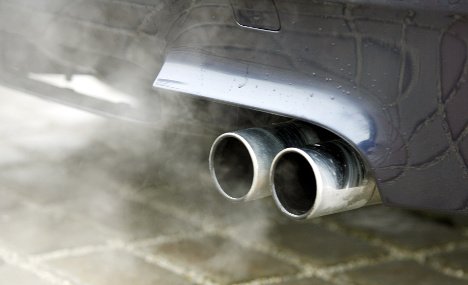EU CO2 rules will save drivers cash
European drivers will save €3,800 over the lifetime of their cars if the EU imposes strict new CO2 standards on manufacturers, according to a recent study.
It says if CO2 emissions from the average car were limited to 95 g per km, fuel use would be cut by a quarter.
The innovations to the vehicle would add about €1,000 to the price of the average car in 2020.
But that extra cost would be offset in less than three years through fuel savings of around €400 per year.
The joint report from consultancies Cambridge Econometrics and Ricardo-AEA says that once all EU cars and vans meet the standard, Europe’s vehicle fleet will be €35 billion cheaper to run each year.
The report is timed to coincide with the first of a series of votes in the European Parliament on car standards.
The 95 g limit is proposed by the Commission. It argues that strict standards are essential to sustain the competitiveness of Europe’s car makers and help the EU meet its targets of reducing transport CO2 emissions 60% by 2050.
The technology is available: cars like the Ford Focus ECOnetic are already achieving the proposed 2020 standard.
The plans may be contentious in the European Parliament, though, with some German MEPs fearing their impact on manufacturers building bigger, heavier cars.
Monday’s report was commissioned by a group of organizations which believe that Europe’s car makers need to ratchet up efficiency to compete with US manufacturers facing President Barack Obama’s demand of 93 g/km in 2025 – a demanding target for US car makers starting from a low base.
The new report estimates that increased spending on vehicle technology will create 350,000-450,000 net additional jobs if the 95 g limit is imposed in Europe. This figure will doubtless be contested.

European drivers will save €3,800 over the lifetime of their cars if the EU imposes strict new CO2 standards on manufacturers
The study was funded by a group including Nissan, the European Association of Automotive Suppliers, GE, the union body IndustriAll and the European Climate Foundation. It focuses only on traditional-engine cars.Improvements are likely to come from many innovations, including building cars from aluminium – much lighter than steel – and installing universal stop-start technology which turns off the engine at traffic lights.
Volkswagen has already committed itself to the 95 g target.
In the run-up to the Geneva Motor Show, Volkswagen’s Martin Winterkorn said the firm intended to become the world’s most environmentally sustainable car maker: “This is a Herculean task calling for the best efforts of all our 40,000 developers. We can do it.”
The European car makers’ association ACEA told me the rules would harm some manufacturers.
A spokesman warned: “Price is the number-one factor motivating a customer’s purchasing decision. In a sector where margins are narrow and consumers have a wide range of choice, even a slight relative price rise can make a manufacturer’s range uncompetitive.”
The authors of Monday’s study point out that this argument underlines the need for new standards to ensure a level playing field for all car makers.
But ACEA continued: “The fact that a car may be cheaper to run once on the road is not relevant if the consumer cannot afford the new technology and instead opts for a used car, with higher emissions – or for keeping his old vehicle, again with higher emissions.”
The campaign group Transport and Environment says this is an old argument from an industry which has been forced by previous standards to improve efficiency and reduce fuel bills. The group argued that the EU needed long-range standards to 2025 to drive further innovation.
It also warns that manufacturers are becoming adept at manipulating tests to make cars appear more efficient than they really are.
The Commission will need to ensure that the move towards diesel vehicles to improve efficiency does not lead to increased local air pollution from particulates.
